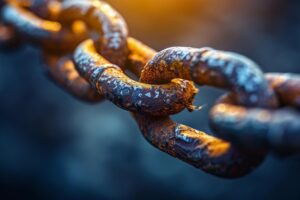Mortgage fraud is a serious issue in the real estate market, with individuals using deceit to secure loans or properties. Two main types include fraud for profit and fraud for property, involving manipulation and falsification methods.
Different schemes, such as property valuation deception and identity theft, are utilized to deceive for financial gain. Legal and financial consequences can be severe, emphasizing the need for prevention measures in document review and verification processes.
Overview of Mortgage Fraud
Mortgage fraud is a serious issue in the real estate industry, involving deceptive practices to secure financing or property acquisition. This type of fraud can have detrimental consequences for both lenders and borrowers alike.
It encompasses various deceitful tactics aimed at manipulating the mortgage process for personal gain.
Individuals and professionals within the industry may engage in fraudulent activities, compromising the integrity of the mortgage system and posing significant risks to all parties involved.
Understanding the nature and prevalence of mortgage fraud is crucial in safeguarding against potential financial and legal ramifications.
- Deceptive practices in mortgage applications
- Manipulation of property valuations
- False representation of financial information
- Forgery of documents
Types of Mortgage Fraud
Mortgage fraud can take various forms, often categorized as fraud for profit or fraud for property.
Fraud for Profit
Individuals within the industry, such as bank agents and mortgage bankers, may engage in fraud to illicitly gain money and assets through misusing the mortgage loan process.
Fraud for Property
On the other hand, borrowers commit fraud for property by falsifying financial information in their mortgage loan application to secure ownership of a property or obtain favorable loan terms.
Mortgage Fraud Schemes
Mortgage fraud schemes encompass various deceitful tactics utilized to manipulate the mortgage process for illicit gains.
These schemes exploit vulnerabilities within the system to carry out fraudulent activities.
Property Valuation Manipulation
Property valuation manipulation involves inflating or deflating the value of a property for the purpose of securing a larger loan amount or gaining unjust financial advantages. This deceptive practice distorts the true market value of the property.
Identity Theft and Fraudulent Identities
Identity theft and fraudulent identities are utilized in mortgage fraud schemes to impersonate legitimate borrowers or create false identities to obtain loans under misleading pretenses. This form of fraud involves the unauthorized use of personal information for financial gain.
Foreclosure Relief Scams
Foreclosure relief scams prey on individuals facing financial distress by offering deceptive solutions to prevent foreclosure, often in exchange for upfront fees or the transfer of property ownership. These scams exploit vulnerable homeowners seeking assistance in dire situations.
Consequences of Mortgage Fraud
In cases of mortgage fraud, individuals face severe legal ramifications and financial impact. Misrepresentation in mortgage transactions can lead to lengthy legal battles and potential prison sentences, along with significant financial penalties.
Legal Ramifications
When mortgage fraud is uncovered, individuals involved may face charges such as conspiracy, wire fraud, and bank fraud. Legal consequences can include heavy fines, restitution payments, and imprisonment for up to 30 years under current federal and state laws.
Financial Impact
Financially, mortgage fraud can devastate both lenders and borrowers. Lenders may suffer substantial financial losses due to fraudulent loans, while borrowers could face foreclosure, damaged credit scores, and potentially losing their homes.
Prevention and Legal Measures
Thorough Review of Documents
When dealing with mortgage transactions, conducting a thorough review of all documents involved is essential. This includes scrutinizing loan agreements, financial statements, and any other relevant paperwork for accuracy and completeness.
Verifying References and Recommendations
It is crucial to verify the references and recommendations of all parties involved in the mortgage process. This step helps ensure that the individuals or organizations you are working with have a credible and trustworthy reputation.
Title History Investigation
Conducting a comprehensive investigation into the title history of the property is vital to uncover any potential red flags or discrepancies. This process helps confirm the ownership of the property and identifies any existing liens or legal issues.
Final Loan Document Review
Prior to signing any final loan documents, a detailed review should be conducted to verify that all information is accurate and reflects the terms agreed upon. This step helps prevent misunderstandings or fraudulent activities from occurring during the mortgage process.
.



















